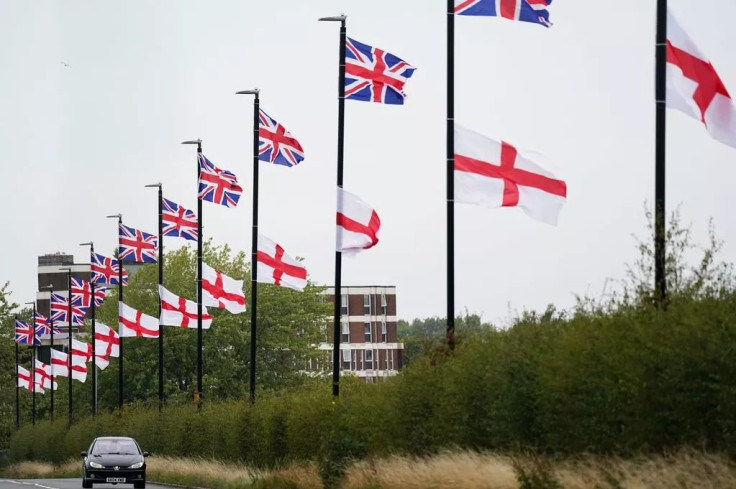Birmingham's Flag Ban Ignites Debate on Patriotism and Belonging

A city-wide dispute over flags has exposed a deeper divide about Englishness and inclusion.
When Birmingham City Council ordered the removal of Union Jacks and St George's Crosses from residential streets, citing safety concerns, residents were outraged, especially after spotting Palestinian flags still fluttering elsewhere.
What began as a row about lampposts has become a national argument over who gets to define belonging in Britain's second-largest city.
From Pride to Protest
The controversy began in Weoley Castle and Northfield, where locals had draped flags to celebrate community pride. Council inspectors soon took them down, saying they violated street-safety rules. Yet images of Palestinian flags still hanging across other districts quickly spread online, fuelling claims of 'anti-English bias' among residents and conservative commentators.
Former immigration minister Robert Jenrick intensified the backlash when he claimed that parts of Birmingham, particularly Handsworth, had become areas where 'you don't see white faces anymore.' His remarks drew sharp criticism from across the political spectrum, with many accusing him of stoking racial division rather than addressing genuine civic issues.
Former West Midlands mayor Andy Street publicly countered Jenrick's claim, calling it 'completely wrong' and describing Handsworth as 'one of the most integrated areas in Britain.'
'I'll put it bluntly,' he said. 'Robert is wrong. It's actually a very integrated place... Not the definition of a slum.'
Andy Street is spot on. Birmingham is a brilliant city. Vibrant, diverse, wonderful. https://t.co/CvyHqGAuOY
— Prof Alice Roberts💙 (@theAliceRoberts) October 7, 2025
A City That Defies the Stereotypes
Handsworth's daily life contradicts the narrative of decline. Afro-Caribbean barbershops, Pakistani grocers, and Polish delis line the same streets. Churches and mosques often share car parks. Children switch easily between accents and languages. It is not perfect harmony—but it is coexistence, not collapse.
Critics of the flag removals argue that ordinary white working-class residents feel dismissed, believing their modest patriotism is being censored. For many, the flag symbolises visibility and pride in communities often left behind by economic change. To them, removing it feels like erasing their story.
For others—particularly people of colour—the same flag can evoke exclusion or threat. The Cross of St George, waved at football matches or rallies, still carries echoes of racism for those who have faced hostility under its shadow. The meaning of national symbols, it seems, depends entirely on who is looking.
Integration or Conditional Belonging?
Politicians often use 'integration' as moral shorthand for conformity—urging migrants to fit in while overlooking the structural barriers that prevent it. Studies show that inequality, not culture, drives most social division.
According to the OECD's Settling In Report (2021), migrants in the UK aretwice as likely to experience in-work poverty as those born in Britain, while the Equality and Human Rights Commission (2022) found persistent pay gaps across ethnic groups. Reduced funding for ESOL programmes—down by more than 60% since 2010—has left many without access to English classes, further isolating them.
When bureaucracy makes citizenship difficult and the economy keeps newcomers precarious, integration becomes less a choice than a challenge. The issue, then, is not whether migrants owe loyalty—but whether the system offers belonging in return.
One Nation, Two Truths
The Birmingham flag dispute is less about cloth than about identity. For one group, flying the Union Jack is a cry for recognition. For another, it is a reminder of exclusion. Both see themselves as defending their home.
Yet Birmingham itself offers an alternative: a city where Englishness is evolving, multi-accented and shared. The people driving buses, staffing hospitals, and teaching in classrooms are the same ones told they do not belong.
The real divide lies not in the streets but in the politics that refuse to see modern England for what it already is—diverse, integrated, and still learning how to call itself one nation.
So the question isn't whether immigrants owe England integration. It's whether England is ready to integrate with itself.
© Copyright IBTimes 2025. All rights reserved.





















